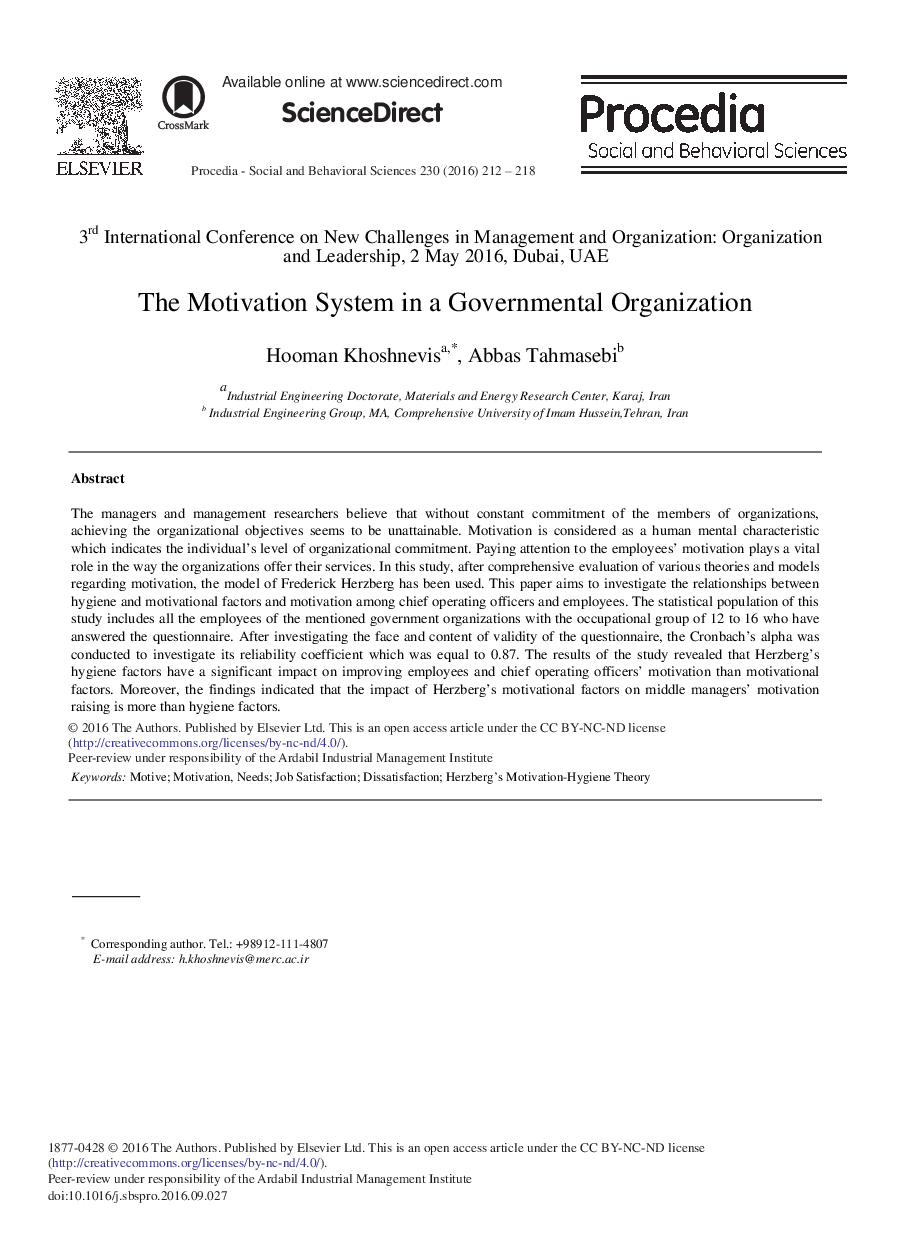| Article ID | Journal | Published Year | Pages | File Type |
|---|---|---|---|---|
| 5126246 | Procedia - Social and Behavioral Sciences | 2016 | 7 Pages |
The managers and management researchers believe that without constant commitment of the members of organizations, achieving the organizational objectives seems to be unattainable. Motivation is considered as a human mental characteristic which indicates the individual's level of organizational commitment. Paying attention to the employees' motivation plays a vital role in the way the organizations offer their services. In this study, after comprehensive evaluation of various theories and models regarding motivation, the model of Frederick Herzberg has been used. This paper aims to investigate the relationships between hygiene and motivational factors and motivation among chief operating officers and employees. The statistical population of this study includes all the employees of the mentioned government organizations with the occupational group of 12 to 16 who have answered the questionnaire. After investigating the face and content of validity of the questionnaire, the Cronbach's alpha was conducted to investigate its reliability coefficient which was equal to 0.87. The results of the study revealed that Herzberg's hygiene factors have a significant impact on improving employees and chief operating officers' motivation than motivational factors. Moreover, the findings indicated that the impact of Herzberg's motivational factors on middle managers' motivation raising is more than hygiene factors.
